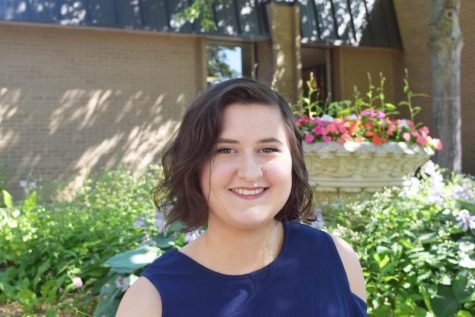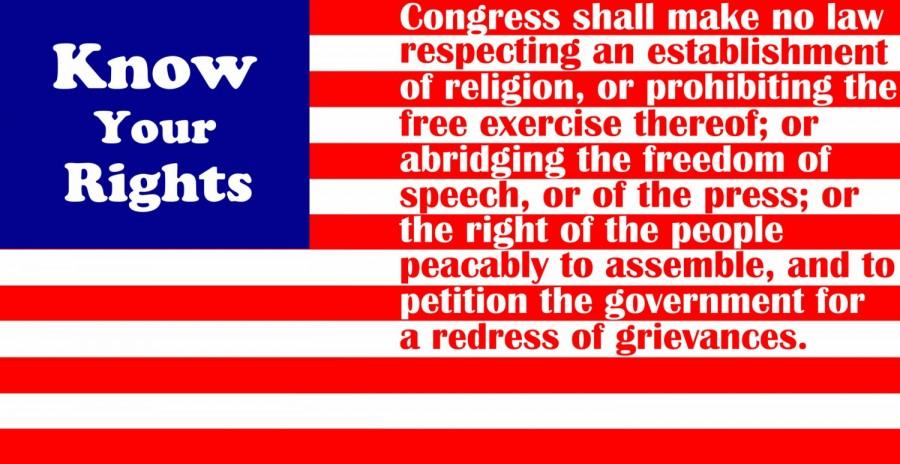Be responsible for your rights
Students can scream “We know our rights,” but they may not know their limitations. We need to realize that the First Amendment only protects the students from the government, and not in a school setting. When students complain about their rights being violated, they do not fully understand the breadth of their rights, only the components that benefit them.
“Students don’t have the same rights as they would if they were off campus. Schools are a special place,” Terry Geogehan, Government teacher, said. “The Bill of Rights is only meant to protect us from the federal government, which means you don’t have the right to say anything you want anywhere you want to.”
The Supreme Court ruled in the landmark case of Tinker vs Des Moines that students expelled for wearing black armbands in a peaceful protest against the Vietnam war have the right on or off school property to express political and social views. This is the only exception that the Supreme Court has ruled in favor of students and their First Amendment rights at school.
The First Amendment contains limitations which are outlined in the nine categories of unprotected speech. One third of adult Americans can identify the Bill of Rights and only one out of ten know they were created to protect us against the federal Government, according to a poll New York Times conducted. This is not enough.
We cannot allow ourselves to be ignorant to what we can and cannot do. If we choose to learn our rights and limitations, there can be a significantly less amount of misuse and misunderstanding.
We cannot use the First Amendment to protect us from being held accountable for our actions when the actions violate the First Amendment. Although the First Amendment protects freedom of speech, we may not use fighting words against another individual.
A popular misconception is that fighting words always involve swearing, but according to the Cornell University Law school, fighting words are just words that would likely make the person whom they are addressed commit an act of violence. Schools may have their own rules against swearing, but the reason for these rules cannot be backed up by the fighting words limitation which can be a possible misunderstanding with students.
A prominent method for defamation – which is untruthful gossip, private information, or any lies said or spread – comes from the invention of social media. This outlet has given us the ability to defame with little fear of any consequences.
Many of us are unaware that lies we may be spreading are a limitation in our rights. We are taught our rights in school, but it is our job to remember them.
“It’s a person’s responsibility to know their rights and limitations,” Geogehan said. “If you want to know your rights, you should know them. You have to educate yourself. That’s what a democracy is.”
Some of us may waltz onto the streets with signs held high screaming our opinions as loud as we want to and be under the impression that this is our right to peaceably assemble; however, it is not that simple.
The right to peaceably assemble is not absolute in the sense that although the government cannot simply prevent a group of people from peaceably assembling, they can put restrictions on the time, place, and manner of how it is done. So for a group of people to act like they can protest at their own whims would be an incorrect use of their rights.
Some of us act like our rights are only there when it benefits us, but they were not made to just be used when it is convenient and to go away when it is not. We tend to use and misuse our rights as a safety net for our wrongdoings, but we need to realize it is a privilege to have these freedoms. We are responsible for knowing our rights and limitations; It is important that we understand and use them properly.

This will be Rachel's third year on staff. After being a staff writer for two years, she has been given the opportunity this year to take on the responsibilities...

